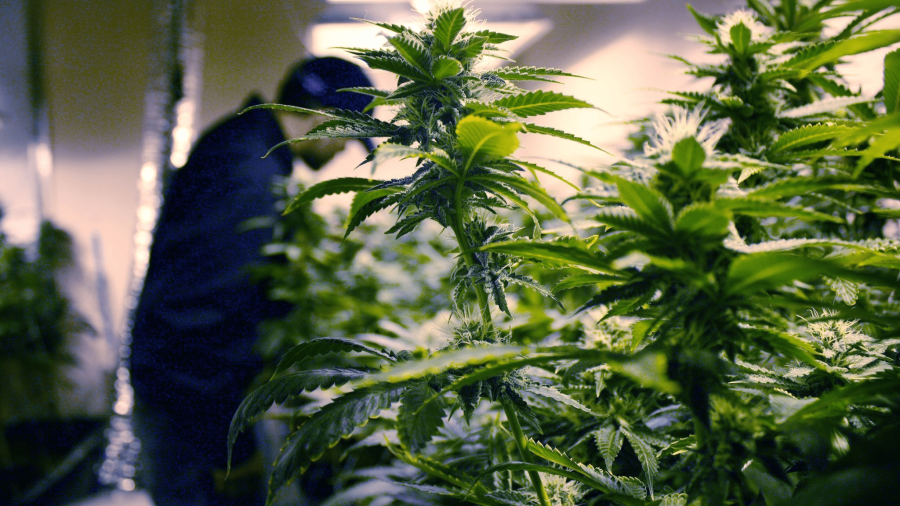As of Jan. 1, 2018, marijuana is officially legal for recreational use in California for individuals age 21 and over. Does that mean we’ll be taking hits with our professors right outside of lectures this year? Probably not. But it does have several implications for potential changes within UC San Diego’s policies. The university currently maintains strict smoke-free and tobacco-free regulations, as well as having complex rules for alcohol sales and consumption in on-campus facilities. It is possible that UCSD’s policies regarding marijuana could remain strict, but with California’s changing laws, the school will have to change its ways to keep up with the state.
UCSD’s policies regarding different substances such as tobacco and alcohol all vary in many notable ways. Throughout the year of 2017 and before, UCSD’s policies regarding marijuana and drug paraphernalia possession and use were very clear: It was not allowed and would be considered a drug violation. Since UCSD went entirely smoke and tobacco-free in September 2013, no form of smoking or tobacco use has been allowed on campus, even in private residential spaces. This policy has applied to all forms of tobacco, including chewing tobacco and snuff. E-cigarette usage, or vaping, is also not allowed on campus due to unknown risks associated with them. And while the university may be right for banning smoking and tobacco products, as second-hand smoke kills 50,000 non-smokers every year, these strict policies shouldn’t fully affect the school’s future marijuana policies.
As the effects of marijuana more closely resemble the effects of alcohol than they do tobacco, both temporarily altering the mind and mood, UCSD policies for marijuana use ought to resemble those for alcohol. If UCSD follows similar guidelines for marijuana as they currently do for alcohol, then that means that students 21 and over can possess and use marijuana in their private residential spaces, such as in on-campus apartments. While this will exclude patios and balconies, the form in which marijuana will be taken may have to be very specific. Following its smoke-free policy, it seems unlikely that UCSD will change its policies to allow students to smoke pot on campus. That being said, the university should change guidelines to allow students to use cannabidiol and THC-infused products. These products would include edibles, weed-infused drinks, and more. While policies should not officially allow students to use these products while walking between classes, students should at least be able to use them in the privacy of their own on-campus dorms or apartments. Also, the medicinal marijuana policy, which currently prohibits marijuana use whether or not one has a medical card, needs to change to reflect the evolving views of marijuana. This change would especially benefit students who rely on marijuana to alleviate anxiety, depression, nausea, etc.
The policy surrounding the sale and distribution of marijuana-based products on campus will not be changing, however. Since marijuana is still illegal through federal law, California’s changing laws won’t have an affect on the school’s present policies against marijuana distribution. The UC schools will have to comply by these federal laws as the universities still receive federal funding. Nevertheless, the university’s policies should not enforce and seek punishment on students’ private, recreational, and medical use of marijuana. Current policies can result in students losing federal loans if found using or possessing marijuana, and with the legalization of pot it remains unfair and excessive to punish students in such consequential manners. Legal technicalities regarding marijuana use should not yield any punishment for students considering that the UC system represents California citizens who voted that they did not have an issue with adults using marijuana.
While UCSD has a lot of thinking to do before changing its current policies and developing new ones for marijuana usage on campus, there are likely many changes coming soon. Marijuana policies will be tricky for the university to maneuver through, but with California’s new laws regarding its usage, UCSD will surely follow suit. And, if we’re lucky, maybe Chancellor Khosla might go ahead and designate April 20 as the official university holiday that we’ve all been waiting for.









Walt • Jan 9, 2018 at 8:48 pm
Wait! Let me get the logic here straight. According to this article, the smoke emitted from burning a plant (tobacco) is so lethal it allegedly kills 50,000 people a year so it needs to be banned even in private quarters but the smoke emitted from burning a plant (marijuana) is harmless and ought to be allowed. Clearly, the author’s not a chemistry major. Since neither plant is itself a carcinogen, any claims of (questionable) harm from their smoke come exclusively from the biproducts of their combustion– the fact that they’re being burned. The use of neither smoked plant should be banned, but to apply a double standard stretches logic to its limits.